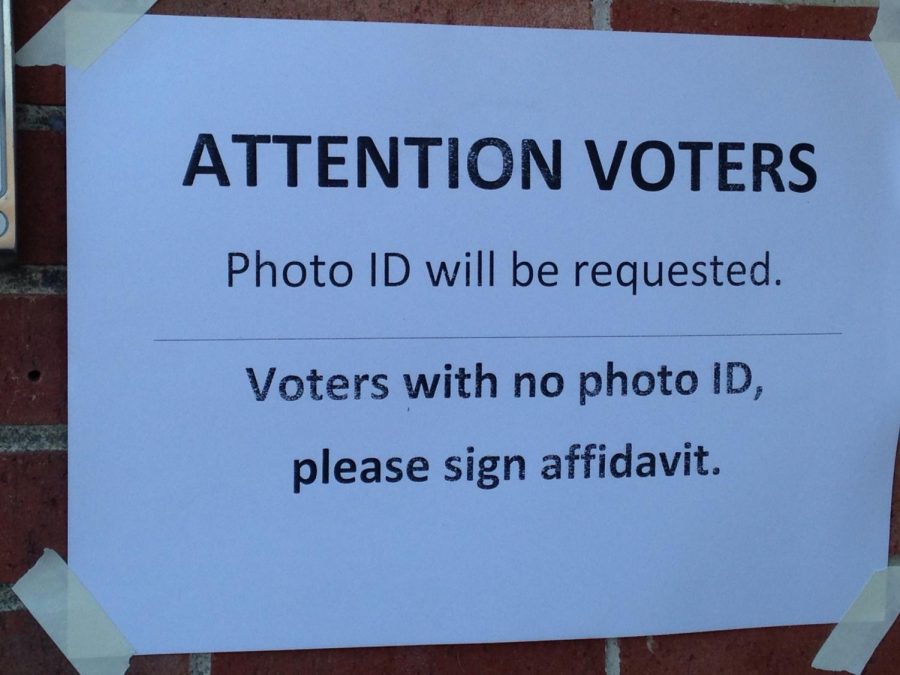Georgia Secretary of State Brian Kemp has eked out a victory in Georgia’s 2018 gubernatorial elections in the midst of widespread accusations of voter suppression.
Up for election in the 2018 midterms were 35 Senate seats, all 435 seats in the House of Representatives, and the gubernatorial positions in 36 states. Georgia’s gubernatorial election pitted Republican Brian Kemp against Democrat Stacey Abrams. Nominee Abrams was in the Georgia House of Representatives from 2013 to 2017. Nominee Kemp was a member of the Georgia Senate from 2003 to 2007 and the Georgia Secretary of State from 2010 until November 8, 2018, when he resigned in preparation to take control of the Governor position.
The Georgia gubernatorial elections were fairly indecisive, with Kemp securing 50.3 percent of the vote and Abrams 48.8 percent. However, prior to and during the election, reports arose that Nominee Kemp was using his position as Georgia Secretary of State—the office that oversees elections in Georgia—to suppress potential voters and sway the election in his favor.
During his tenure as Georgia Secretary of State, Kemp has enacted multiple purges of Georgia’s voter roles. According to an Associated Press report, Kemp’s office has cancelled over 1.4 million voter registrations since 2012 and over 670,000 in 2017 alone. Furthermore, an independent analysis by the Palast Investigative Fund found that over 340,000 voters had been improperly purged from the rolls.
“Their registration is cancelled,” explained Greg Palast, a reporter for The Guardian. “Not pending, not inactive—cancelled. If they show up to vote on 6 November, they will not be allowed to vote. That’s wrong.”
In addition, according to the Atlanta Journal-Constitution, Georgia election officials have closed 214 precincts—nearly 8 percent of the total voter centers—across the state since 2012, creating longer journeys to polling places, longer lines, and longer waiting times.
“Look at the areas where they’re closing precincts and consolidating,” Helen Butler, director of a Georgia civil rights group, told the Journal. “It’s usually in areas with poor people and minority communities that have less resources to get to other locations.”
Finally, Kemp’s office also put 53,000 voter registrations on hold, nearly 70 percent of which are for African-American voters, just days before the registration deadline. Georgia used an “exact match” verification process which requires voter applications to have information that exactly matches what is in Georgia’s records.
“This is not how a civilized society… runs its voting apparatus,” Brenda Goldstein, an African-American voter in California, told the Paw Print. “In a democracy, people should be concerned with getting as many citizens as possible to vote. Enacting illegal purges and exhaustive registration measures such as that ‘exact match’ system limit the people who can vote. It’s despicable.”
Kemp has repeatedly denied that the purges were used for voter suppression.
“This farce about voter suppression and people being held up from being on the rolls… is absolutely not true,” Kemp asserted in a televised debate with his opponent Stacey Abrams. In a statement to CNN, he later claimed that “The fact is that it has never been easier to register to vote and get engaged in the electoral process in Georgia, and we are incredibly proud to report this new record.”
Despite Kemp’s victory, Abrams has thus far refused to concede.
“Voter suppression isn’t only about blocking the vote,” Abrams insisted. “It is also about creating an atmosphere of fear, making sure their votes won’t count.”





